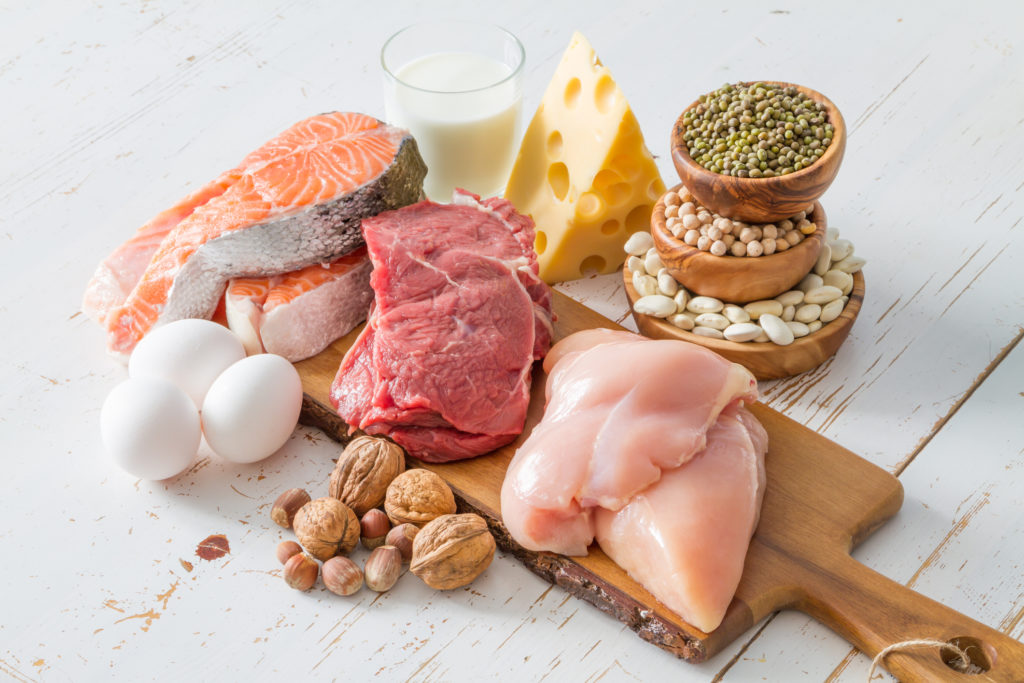Food and Nutrition: Separating Fact from Fiction

One of the most important things we can do to maintain a healthy body and mind is to eat nutritiously. This can be a challenge for many people, because not only do most of us have a “guilty pleasure” when it comes to food, different studies tell us different things and sometimes it seems like what was considered healthy today is consider unhealthy tomorrow. But there are some things which almost all research agrees with. Here are five common myths that may be harming your health.
Myth #1: “Low fat” is synonymous with “healthy”
Fats have gotten a lot of bad press, but not all fats are created equal. Many low-fat or nonfat foods are loaded with sugar, which can be more harmful to health than fats. This added sugar also adds lots of calories. Many foods high in fat – avocados, olive oil, wild salmon, walnuts – have numerous benefits and can actually help improve health. There are fats you should always avoid – trans fats (or partially hydrogenated oils) being the main culprit. In fact, the Food and Drug Administration (FDA) has said that by June 18, 2018, all food manufacturers must ensure that their products no longer contain partially hydrogenated oils for uses that have not been otherwise authorized by the FDA.
Myth #2: All fish is good for you
While much fish is good for you – especially wild Alaskan salmon, sardines, and herring (all rich in brain-healthy omega-3s) – many fish are high in mercury and PCBs, both of which have been found to be harmful to human health. Shark, swordfish and orange roughy can have high mercury levels; PCB content often depends on where the fish come from, so it’s best to do some research on fish in your area. Imported shrimp, which is nearly 80 percent of what Americans consume, have been shown, in some cases, to contain high levels of antibiotics and pesticides.
Myth #3: Eggs are bad for your heart
Eggs are high in dietary cholesterol. That much is true. But there is no evidence that shows that eating eggs raises your serum cholesterol (the number you get from your doctor after a blood test). The Framingham Heart Study examined the serum cholesterol in high versus low egg consumption and found no significant difference in either men or women. In fact, eggs are extremely nutrient-rich and are a source of high-quality protein. According to a study by the Harvard School of Public Health, regular consumption of eggs may help prevent blood clots, stroke, and heart attacks.
Myth #4: Dairy products are necessary for healthy bones
This is one of the most persistent myths about food, but research shows that it simply isn’t true. Milk is high in calcium and calcium is necessary for bone health – but in its natural state, it’s also high in saturated fat. Dark leafy greens – such as kale, watercress, collards and arugula – are also high in calcium and provide numerous other health benefits as well. Other good sources of calcium include broccoli, almonds, white beans and sardines, all of which provide numerous nutritional benefits. Additionally, greens have vitamin K, another nutrient necessary for bone health. Milk doesn’t. Harvard pediatrician David Ludwig notes that bone fracture rates tend to be lower in countries that do not consume milk, compared with those that do. In a study he published in the Journal of the American Medical Association Pediatrics, Ludwig notes that humans have no nutritional need for animal milk and that “milk consumption does not protect against fractures in adults.”
Myth #5: Foods that are “all natural” are necessarily good for you
The label “all natural” is popping up everywhere these days. There are numerous problems with foods labeled “all natural.” First, the FDA doesn’t regulate the term, meaning virtually anyone can use it without substantiating the claim. Second, many “natural” ingredients are harmful to human health – processed sugar, nicotine, and mercury, just to name a few. The bottom line is that virtually anything can be called “natural,” making the term meaningless when it’s found on a food label.
This article is not intended to replace the advice of your healthcare provider. Speak to your doctor and/or a registered dietitian if you have questions about your nutritional needs.
![CPT Rehab [logo]](https://www.cptrehab.com/wp-content/themes/cpt-rehab/images/logo.png)